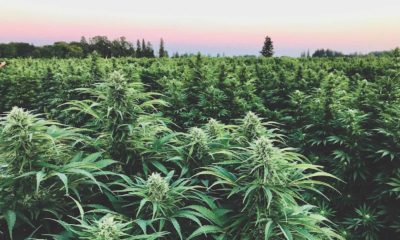
Economics
Will Puerto Rico Produce the United States Cannabis Supply?
The island territory is a global drug-manufacturing capital and now big cannabis companies are taking a foothold.
Drugs are central to Puerto Rico’s place in the world. Without Puerto Rico, the world would run out of medicine; without medicine, Puerto Rico would run out of money.
Here, look: numbers. As per the U.S. territory’s government, there are 49 Food and Drug Administration-approved pharmaceutical-drug factories on the island. Major companies including Pfizer, Merck and Bristol-Meyers Squibb all have presences on Puerto Rico, which in turn relies on drug companies for as much as 30% of its economy. Eleven of the world’s 20 top-selling pharmaceutical products are made in Puerto Rico, where the pharmaceutical industry recovered from the devastation of Hurricane Maria much more quickly than the rest of the island — and where medical cannabis, increasingly an alternative or supplement to mainstream prescription drugs, is also legal.
Inevitable, perhaps, was the day when American cannabis companies based on the mainland would set up shop on Puerto Rico — or when pharmaceutical companies realized that leasing excess space to would-be marijuana giants is a winning idea. As FiercePharma, an industry website, recently noted, the pharmaceutical industry writ large has lots of excess space “idling” — and the imperative for every publicly traded cannabis company has been growth at all costs.
And so here we are.
As Marijuana Business Daily first reported, Vireo announced that it had acquired 11 cannabis licenses on Puerto Rico on June 20, with plans to open up six dispensaries as well as convert a former Pfizer factory into a cannabis cultivation and production operation.
Medical cannabis has been legal in Puerto Rico since July 2017. There are currently 72,000 patients in the territory — or more certified patients than in all of the New York City metro area, where Viero runs a pair of dispensaries.
Vireo is now active in eleven U.S. states and territories, part of a wider nationwide trend of big operators growing even bigger. Vireo purchased a Massachusetts recreational marijuana license for $10 million in April. Meanwhile, the company’s home base is in Minnesota, where former company executives stand accused of illegally smuggling cannabis oil across state lines from Minnesota to its operations in New York.
Both New York and Minnesota are known for restrictive medical marijuana laws that severely limit patient approval and also limit the range of products available to patients who do manage to qualify.
And growing cannabis on Puerto Rico isn’t exactly like producing pills on the island. Pills you can export to the mainland or other countries; cannabis products still cannot legally cross state lines.
It’s hard to figure whether Vireo’s Puerto Rico play is forward-thinking to a time when interstate and international commerce is legal, or a lateral move to please investors and show growth in what is likely to be a lengthy fallow period for legalization. Maybe both?
Legislative sessions ended in New York and New Jersey without the passage of adult-use cannabis laws, and the competition for licenses in Illinois, which did legalize, is likely to be very fierce and very expensive. Expanding where-ever it can, and attempting to seize a portion of the market there, may be one of the easier paths forward for a company looking to make moves.
At the same time, it will take a fundamental overhaul of American cannabis laws and serious upheaval in the market for Puerto Rico to become the Puerto Rico of cannabis. Prescription drugs travel well; weed really doesn’t. Pharma will still be king on the island for a while.
TELL US, do you think we will ever see cannabis commerce between states and U.S. territories?























